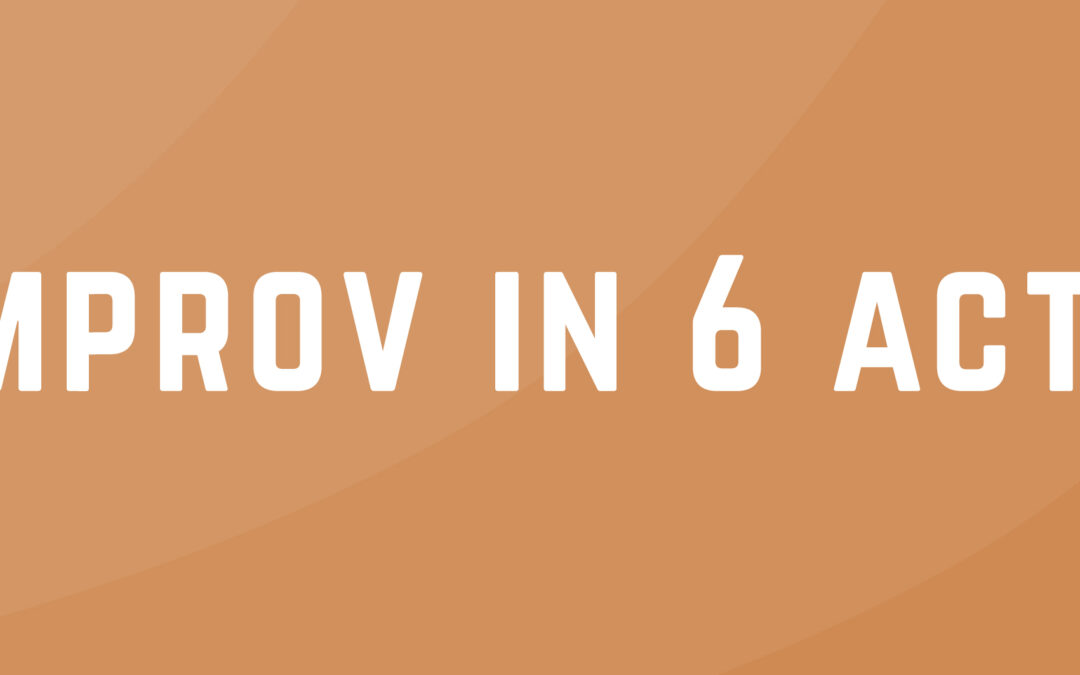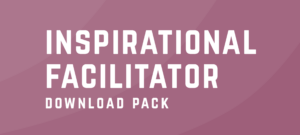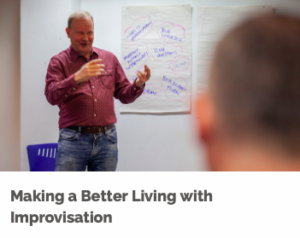What if communication goes right?

A fellow facilitator described how he had worked with a high-performing team and tested the team with an activity with which some of you may be familiar.
It’s called ‘Telephone’ and it involves each player in the team passing a mimed message along the line, one person at a time. Usually the physical signals mutate and the message at the end barely resembles that at the beginning. It’s amusing to watch and can hammer home the ideas that communication Is difficult and that it often goes wrong.
In this instance, the team had passed the message along with great fidelity and the facilitator was stumped. He expected and needed them to fail so that he could teach them a lesson about how to do it better. For example, they might come up with the idea of checking that the person next in line has got the message correct before passing it along. His view was that without mistakes, there could be no discussion where that potentially useful suggestion would be made.
To his credit and experience, on his feet, he came up with an affirmation of the team’s ability, saying ‘you certainly are a good team’. What did not occur to him at the time because of this fixation on failure and his assumption that this is how this communication game is supposed to work, was to ask some different questions. It was a wonderful opportunity to ask the team how they managed to accomplish such a high standard of performance in this task:
- Could they repeat it?
- If it were desirable, could they do it again even faster with some new signals?
- How are they applying their skills and methods to their regular communications in the workplace?
In short, he would have been helped by the LIFEPASS improvisation principle, ‘Spot success’*. This principle reminds us that good improvisation consists of using what’s available, and in particular using what’s there that is working, (or if nothing is working, then what’s available that can be made to work) in order to advance. It’s the grand idea from hypno-therapist Milton Erickson of ‘utilisation’, or – in improvisers’ language – the selection of what to say ‘Yes’ to, so that you can add an ‘And’.
By spotting successes, participants in any discussion or activity are put into a resourceful state with which to take on new challenges and (as in this case) perhaps to become an even more consistent or accomplished team. Whatever the facilitator might have assumed, they didn’t need to get something wrong to produce an opportunity to learn or to get the next thing right.
*’S’ is the final LIFEPASS improvisation principle
Read more about the eight LIFEPASS principles including Letting Go on Easy: Your LIFEPASS to Creativity and Confidence.
Read more blogs about LIFEPASS: Eight secrets for applying improvisation in life and at work

Letting Go – of fixed plans and more…
Just had delivered 100 lovely reprints of my book Easy, fully-illustrated and in colour. It presents 8 improvisation principles, under the acronym LIFEPASS.
Order your copy today – the perfect stocking filler!

Storytelling success for business leaders
Imagine having the ability to captivate your audience, whether it’s during a conference, team meeting or negotiating with clients.
After a sell-out September session, we are delighted to offer our popular half day ‘Storytelling for Leaders’ workshop for one final time this year, on Thursday 16th November.

The Secrets of Improv – in person
Are you ready to learn the core skills of improv performance to take on stage or apply in your life? If so, please join us in Oxford for “Improv in 6 Acts”. Over six weekly sessions, you’ll learn improv comedy and discover the fun of letting go of perfectionism, creating spontaneously and playfully building confidence.

How to add final value as a facilitator
How can we ensure that at the end of a workshop people fully appreciate the value of what they have experienced?
This matters a lot if we want participants to appreciate the progress that they are making, and it strengthens the prospects for sustainable change too…

Explosive dynamics! How would you design this tricky 2-hour session?
Would you like to sharpen your design skills and discover strategies for tricky groups?
Order your Inspirational Facilitator offline programme today for all the tips and techniques to give you the competitive edge!

Letting learners choose – the facilitator’s secret skill
Everyone likes to learn in their own way. You’re doubtless thrilled to hear that I’m improving my guitar playing - and I guarantee that no one has followed the same path as me on the app I’ve been using. What any player might appreciate about this particular learning...

How to create ‘Safe space’. It takes more than an announcement
You don’t create psychological safety simply by stating, ‘This is a safe space’. An announcement may indicate your intent, but it’s of minimal value unless supported by solid behaviour. Here are two actions that will go a long way towards substantiating your claim..

Just when you thought it was safe…
Each time we have a discussion among facilitators about what’s on the way out in the world of conferences, trainings and meetings, someone confidently predicts the end of tedious lectures accompanied by a Powerpoint presentation..

Create value from the difference between real time and facilitator time
There’s real time. And then there’s ‘facilitator time’. Real time ticks by steadily on the clock. Facilitator time is conjured up between you and your participants, and it’s as flexible as fresh clay..

What are the benefits of Applied Improvisation?
Thousands of people have testified to long-term, beneficial consequences of experiencing improvisation in a workshop or training programme. Read on to find out more..
Get free tips on how to develop confidence and creativity straight into your inbox.



![DJI Systems - web design | marketing | admin systems | consulting - [ anglesey / wales ] DJI Systems - web design | marketing | admin systems | consulting - [ anglesey / wales ]](https://djisystems.com/banners/DJI_WebBanner_lt.png)
